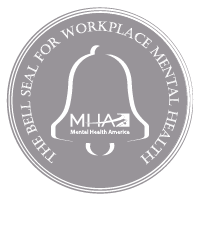
The Big Seven: Foundational Principles for Living the Grateful Life
Offered by Healthy IU
Each May is Mental Health Month, and in support of Mental Health America’s latest campaign, #TurnAwarenessIntoAction, we’re highlighting the importance of caring for your mental well-being: now and throughout the year.
At times, life can feel overwhelming – whether you're managing ongoing stress, navigating difficult emotions, or simply trying to stay grounded when the world feels uncertain. No matter what you're going through, it's important to know you’re not alone and that help is available.
Let’s use this month as a reminder to care for ourselves and for one another. Because mental health is health, and your mental health matters.
Explore: IU's employee assistance program, SupportLinc
Attend: Upcoming mental health webinars
Take action: Mental Health Month action guide
It’s not always easy to know when it’s time to ask for help. Mental health challenges can show up in different ways, and it’s common to downplay or ignore the signs. But you don’t have to wait until you’re in crisis to reach out. Here’s how to recognize when you might need some extra support—and what to do next.
Everyone has tough days—but when mental health concerns start to interfere with your daily life, it may be time to reach out for support.
Signs you may benefit from professional help include:
Remember: It's OK to not be OK. Seeking help is a sign of strength—not weakness.
Resources & tools:
*This resource requires you to log in to SupportLinc. You can create your account using group code = iu.
Everyone’s mental health journey is different—and so is the kind of support that works best. Here are some steps you can take to find care that's right for you.
Learn about the different types of providers and counseling options.
Make an appointment with your primary care doctor. They may begin by making sure your symptoms are caused by a mental health condition and not something else. If you don't have a primary care provider, you can establish with one at Marathon Health.
Connect with a mental health provider. If your doctor recommends that you see a professional, or if you prefer to make an appointment with a mental health provider directly, here are some options to find one:
Contact SupportLinc employee assistance program EAP at 888-881-5462. They provide free, confidential, in-the-moment support and referrals, as well as up to six free face-to-face counseling sessions per issue, per year. They also offer virtual and text therapy options, and a comprehensive library of self-help tools. Learn more by logging in to supportlinc.com (group code = iu).
Schedule an appointment at Marathon Health. Visits cost just $35 and are available virtually or in person at select locations, including Bloomington and Indianapolis. Call 866-434-3255 or log in to the Marathon Health patient portal to schedule an appointment.
Book an appointment through Headway, a tool that helps you filter through therapists and psychiatrists in Anthem's network based on your preferences and needs.
Visit the Find Help & Resources page for a comprehensive list of counseling options for IU employees.
Resources & tools:
Starting therapy can feel like a big step—but knowing what to expect can make it easier.
Therapy isn’t about being “fixed” — it’s about gaining insight, building resilience, and developing the tools to navigate life with greater clarity and confidence. The more you invest in the process, the more meaningful the outcome will be!
Resources & tools:
Sustaining mental health requires time and effort. And like anything else, the more you invest in it, the stronger it becomes. Check out the resources below to help you get and stay mentally well.
Resources & tools:
Training & events:
*This resource requires you to log in to SupportLinc. You can create your account using group code = iu.

The Big Seven: Foundational Principles for Living the Grateful Life
Offered by Healthy IU

Anxiety at Work – Training for People Leaders; (3 hours)
Online
-
Offered by Healthy IU. This 3-hour training is recommended for people leaders.

Using Music for the Prevention of Moral Injury
Offered by Healthy IU
The Bell Seal for Workplace Mental Health is a distinction awarded by Mental Health America to organizations that meet national workplace mental health standards. Indiana University's 2025 Platinum Bell Seal recipient status demonstrates our outstanding commitment to employee mental health and well-being.
